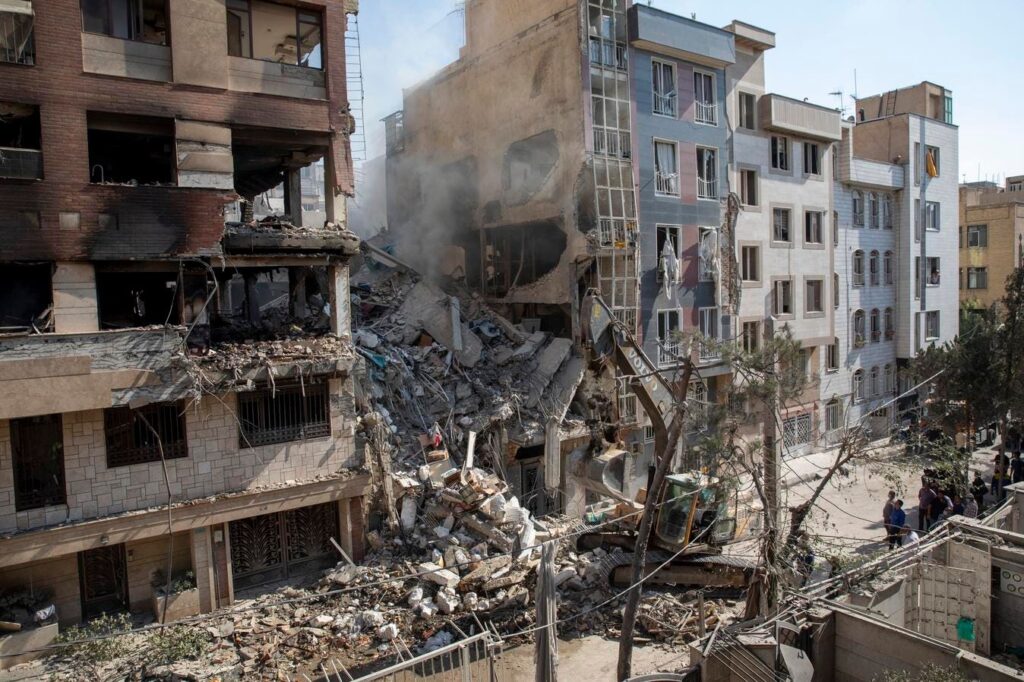Just over twenty years ago I had lunch in a roadside café near Natanz in Iran (on the way back from Isfahan to Tehran). At the time, it was well known that Natanz was a nuclear research site, and a location that was becoming more of a geopolitical focal point given George W Bush’s inclusion of Iran in the ‘Axis of Evil’ (despite large ‘Death to America’ murals in Tehran, it had offered to assist the US in the war against the Taliban).
Up until then, Iran was the host of one of the larger Jewish populations in the world (roughly 80,000 then) and historical ties between Iran and Israel were strong, as I outlined in a note last year entitled ‘Persepolis’, and I still believe that socially and culturally the populations of Tel Aviv and Northern Tehran have more in common than many would think.
This speaks to the potential that Iran owes to its heritage, but that has been smothered by a small, inward looking and harsh theocracy, aided and abetted by the Revolutionary Guard who exert de facto control over the Iranian economy as well as other sectors. They were notoriously responsible for the death of Masha Amini in 2022, and on average the Iranian state has killed 2-3 of its young people every week, something that should really elicit more anger from students across Europe and Asia.
What happens to Iran is now an open question. During the week I had the benefit of hosting a call for a group of investors with Ambassador Dennis Ross, the authority on the region from a Western point of view. His sense is that granted Israel views the threat from Iran’s nuclear programme as existential (the jawboning of the former Iranian president Mahmoud Ahmadinejad did much to reinforce this), the permanent dismantling of Iran’s nuclear program is the de minimus goal of Israel.
It is reported that Iran has been reaching out to other countries in the region to signal that it is ready to negotiate, and a negotiation process that is stewarded by Russia for example would help the Iranian regime avoid embarrassment (I recall the advice of Seamus Mallon, a key participant in the Good Friday Accord, who said that a good negotiator makes sure that his opposite number ‘can get up with his pants on’). If Iran is ready to offer serious, verifiable concessions, it is possible that this conflict can come to an end, something that may please Donald Trump who has been quicker to associate himself with the success of the Israeli operation than to offer Israel unconditional military support.
Indeed, the next few weeks are a test of Trump’s mettle and credibility. In reality his two week pause is yet another sign of indecision.
A joint US/Israeli strike on the Fordow mountain nuclear centre, near the holy city of Qom, and strikes across the wider Iranian theatre may provoke a counter-reaction by Iran, notably so against the Emirates and Saudi Arabia and might ignite a response from other quarters that have been relatively quiet (Iraq and Yemen for example). There is very energetic communication from the Gulf to Washington that a US strike could have very negative consequences for the region and might lead to a broader, less predictable conflict.
The tail-risk for the regime in Iran is a deeper recession, financial crisis and internal political strife, though it is most likely that the succession around Ayatollah Khamenei provides the best opportunity for a political turning point. Most Western observers vastly underestimate how difficult it would be to foment regime change in Iran, as much as that is highly desirable.
On a more positive tack, an agreement from Iran that removes the existential risk to Israel might also provide the geopolitical climate to bring an end to hostilities in Gaza, and for a meaningful calm across the region with the potential of an economic recovery. This might well be the catalyst for my ‘Fourth Pole’ thesis of an increasingly coherent economic zone in the Middle East, whose diplomatic centre is Abu Dhabi, geopolitical and technological power is Israel, and where the populations of Saudi Arabia, Turkey, Egypt and Iran, to name a few, contribute to a growing regional economy.
Europe would likely benefit from this, though my sense is that it is increasingly less relevant as a diplomatic power in the Middle East. Emmanuel Macron for instance has lost enormous sway in Israel, Lebanon and Saudi Arabia. In this regard, there are two lessons for Europe to bear in mind relating to Israel’s operation in Iran.
The first, in parallel to Ukraine’s resistance to Russia, is the demonstration that Israel has offered in military strategy and the multifaceted uses of technology. The second lesson is that Israel’s action is also illegal and contributes to an increasingly lawless international geopolitical climate.
Finally, Russia and China have been discretely critical of Israel, though they will be dismayed at the ease with which Iran’s defences have been dismantled, and they should be cognisant of the role that corruption has played here. Losing Iran as a member of their club (the ‘Shanghai Cooperation Organisation’) would constitute a major blow, but in the short-run their attention will be focused on how America responds to Israel’s move.
Have a great week ahead,
Mike
Read the full article here
